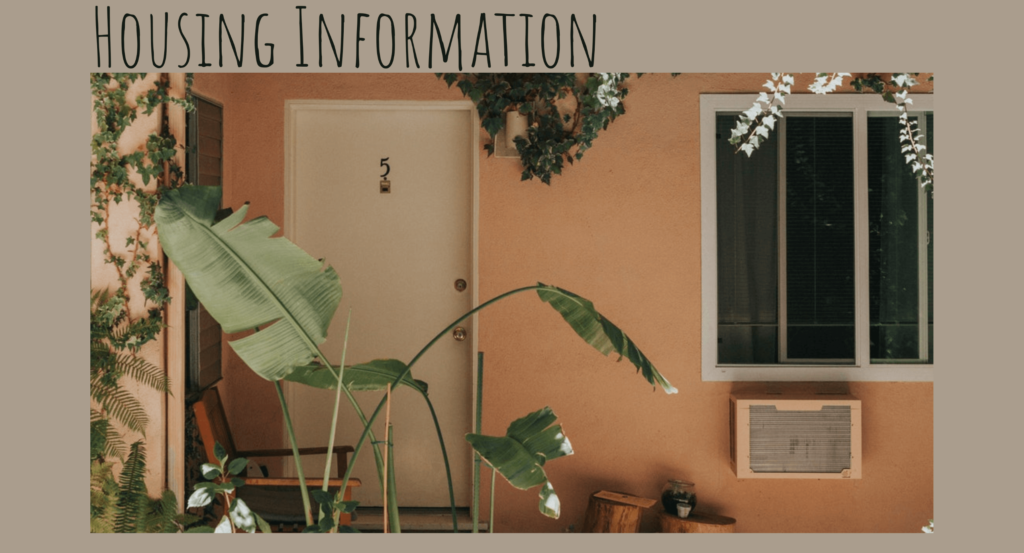Housing Information

UMaine Housing
Going Abroad in SPRING?
If living on campus in the fall, notify Housing Services (um.housing@maine.edu, 207.581.4580) that you will be completing an education abroad and request a cancelation of your spring housing contract. No penalty fees will be applied. Please provide your program acceptance letter as verification you will be abroad.
Going Abroad in FALL?
Do not participate in Room Selection in the spring semester preceding your abroad program. Contact Housing Services (um.housing@maine.edu, 207-581-4580) about 1-2 months before returning to UMaine, to apply for spring housing on campus.
Housing Abroad
Most direct exchange programs will have one option only, but students going through a recommended program will have multiple options. Here are some suggestions based on students’ feedback.
Good Social Environment
Residence Hall – Interaction with peers of similar age, may be with local or other international students. Students will generally have a single, double or triple room with a shared kitchen and bathroom area. Residence halls allow students to stay on campus and near the university. Rooms are generally fully furnished and will include all utilities. Look into whether your hall has meal plans; a lot of the time, universities won’t offer meal plans and students will need to grocery shop and cook for themselves.
Apartment – Can prepare your own food, but you may be culturally, socially and linguistically isolated. You may need to make effort to meet, connect and socialize with locals. May be an option with one of the providers where you’ll generally stay with other students from the university or on the same program as you. You’ll be placed in a shared apartment with a common are and kitchen. Depending on location, you may have to commute to and from campus. Be sure to check with your provider what general commute times are. Students will also want to check about utilities and whether or not they’re included in rent.
Greatest Immersion
Homestay with a local family – allows for great cultural immersion, amazing home cooked food, and language training. While may seem scary before you leave, students report greatest cultural and language acquisition at the end of the program. May not be for you if your boyfriend/girlfriend is on the program with you.
Homestay Tips
If you have the opportunity to participate in a homestay in your host country, it can be an eye-opening experience.
- Remember that families come in all shapes and sizes – no matter where you are in the world.
- Your experience will depend as much on your cooperation, good will, and courtesy as it does on the family’s.
- While your family may be paid a small stipend for your room and board, no amount of money can adequately compensate them if they receive a “bad” student.
- You are a guest, even a boarder, and they will probably appreciate it if you: Bring a gift. Something that represents your home institution, your hometown or state is almost always well received.
- Help out with daily household tasks, such as washing the dishes.
- Ask permission to use the telephone and pay adequately for your calls. Remember that many host country telephone systems charge per “click” for telephone usage. This is very different, and more expensive, than the USA method of a monthly charge that covers local calls.
- Do not raid the refrigerator without express permission.
- Do not use excessive amounts of hot water. Water is a precious and expensive commodity in many countries and cultures.
- Be receptive to activities planned by your host family. Your homestay family and program leaders may well make arrangements to show you interesting sites in the area, but this may not always be possible during their work week.
- You should relax and be yourself.
- Try to be flexible and fit in with the family’s routine.
- If you are unsure, try to take your cues from the family and ask polite questions.
- Write or call your homestay family after your homestay is over. They will be interested in hearing about your studies and further adventures.
